Chinese Qixi Festival is considered Chinese Valentine’s Day, which is also known as Qiqiao Festival in Chinese, full of romance and happiness on the streets. This romantic festival will come on the seventh day of the seventh month of the Chinese lunar calendar; therefore, it is also called the Double Seventh Festival. Being different in each year, it will fall on August 29, 2025. Although it is not a public holiday and there are no days off, various celebrations and traditions will still be held on that day.
The Qixi Festival's history is more than 2,000 years, being traced back to the Han Dynasty (202 BC-220 AD). The origin of the Qixi Festival is closely associated with the ancient love story, the Weaver Girl and the Cowherd, widely known in China. As one of the traditional Chinese Festivals, this Chinese Valentine’s Day was listed in the Intangible Cultural Heritage list in 2006.
Table of Contents
What is Qixi Festival?
When is Qixi Festival 2025?
The Legend of Qixi: The Story of Niulang and Zhinu
Qixi Festival Traditions and Activities
How Qixi Festival Differs from Western Valentine’s Day
What Are Other Romantic Festivals in China?
FAQs about Qixi Festival
What is Qixi Festival?
Chinese Valentine’s Day, is pretty much the same as Western Valentine’s Day, on which couples will hang out and spend time together and exchange gifts with each other. For single people, they tend to pray for romance. Except that praying for the moon and the Weaver girl were popular activities in ancient times. Young females would pray on July 7 in the lunar calendar for ingenuity. Females would make Qiaoguo, and Qiqiao Cake, and give red beans and hand-made sachets to their crush.
The Qixi Festival evolved from Chinese constellation worship and was the first group of national intangible cultural heritage. It not only plays an important role in Chinese culture but also has an impact on other Asian countries, like Japan, North Korea, Vietnam, etc.
When is Qixi Festival 2025?
Like most traditional festivals, China Valentine’s Day depends on the Chinese lunar calendar, falling on the seventh day of the seventh lunar month. Here are the recent dates of the Qixi Festival for your reference, including its 2025 schedule.
Year Date of Qixi Festival Day 2023 August 22 Tuesday 2024 August 10 Saturday 2025 August 29 Friday 2026 August 19 Wednesday 2027 August 8 Sunday 2028 August 26 Saturday
The Legend of Qixi: The Story of Niulang and Zhinu
As early as ancient Prehistoric Times, people began to worship stars and study constellations, and they found two stars, Altair and Vega, on the two sides of the Milky Way to meet each other once a year, since then their reunion was considered a special day. For now, most people believe that the Qixi Festival is to commemorate the love story between the weaver, Zhinv, and the cowherd, Niulang.
It was said that Niulang and Zhinv fell in love, which was forbidden by the Zhnv’s parents. After that, Zhinv was punished for weaving clouds in heaven. While Niulang was exiled to the earth to be a normal guy, who lived with his brother and sister-in-law without parents since he was a kid. However, the elder brother and his wife treated Niulang meanly and banished him from home. So, Niulang built a cottage and lived with an ox, who turned out to be the fallen Taurus.
One day, the ox suddenly told him that there would be goddesses coming to the pond to take a bath. One of them was Zhinv, who was beautiful and the daughter of the Emperor of Heaven. If he took her clothes away, she could be his wife. Niulang waited for their coming by the river. When those goddesses were coming and taking a bath. Niulang took Zhinv’s clothes away. Other fairies observed this, dressed up, and flew away. Niulang came up and told the left Zhinv that he had fallen in love with her, and Zhinv recognized him and agreed to get married to him. After that, they lived a simple and happy life with their two kids on the earth.
However, happy times did not last for a long time. The Queen Mother of Heaven discovered the secret and ordered soldiers to take Zhinv back to heaven. Once seeing it, Niulang was catching up in a hurry. At this time, the queen plucked her hairpin to tear through the sky, which created the Milky Way, separating them in the middle. Being sorrowfully separated, the two cried their hearts out. Queen Mother of Heaven saw this, moving by their true love, and allowed them to meet once a year on the 7th of the 7th lunar month. Therefore, in late summer of the year, magpies will form a bridge across the Milky Way to reunite Niulang and Zhinv. This day is also called the Magpie Festival.
Qixi Festival Traditions and Activities
Qixi Festival is also referred to as Qiqiao Festival, meaning festival to beg for ingenuity, on which females would pray for being handy. And traditional Qixi Festival activities, including threading and throwing needles, and celebrations would be held. There are many others For now, these traditions are combined with modern elements.
Threading Needles
This is the earliest method to pray for dexterity, stemming from the Han Dynasty (202 BC-220 AD). At night of the day, females would thread needles against the moon. The first person who finished it was considered the one who successfully prayed.
Testing one’s Dexterity by the Spider Web
It sprang up later than the former. In the evening of the day, female youngsters would put a spider into a box and observe the spinning of webs in the morning to tell whether they successfully prayed.
Celebrating Qixi Festival in Ancient Times
Praying for Zhinv
Of all China Valentine’s Day traditions, praying for Zhinv could be the most typical one. Young women would set a table under the moonlight and put an incense holder and some offerings on it, like tea, wine, and some dried fruits. And then they began to meditate on their thoughts facing the Vega star.
Pray for Kui Xing
Kuixing, also renowned as Great Master Kui, is a character in Chinese mythology, who is responsible for the examination. It was said that July 7 in the lunar calendar was just his birthday. At night of the day, readers would set an altar, facing the Kui Xing, and kowtow to pray for a successful pass.
Eating Qiaoguo
Qiaoguo is a typical Qixi festival food with various shapes, mainly made of oil, flour, and sugar. The dough mixed with sesame and syrup was cut into long squares after cooling down. Folded stripe things were put into the frying pan. People not only make the snacks but also send them to relatives and friends.
Celebrating Qixi Festival in Modern Times
Celebrations in modern times are combined with traditional and modern features. In addition to Qixi Festival celebrations mentioned above, couples will date and exchange gifts. Nowadays, Chinese Valentine's Day gifts are mostly a combination of modern features, such as flowers and chocolate, to work on the romantic ambiance. Many lovers will choose to hang out and travel to spend time with each other.
How Qixi Festival Differs from Western Valentine’s Day
Origin and History
Qixi Festival stemmed from the Han Dynasty, originally for commemorating the Stars, Altair, and Vega, and praying for ingenuity. It gradually evolved as the love story of Niulang and Zhinv and became a romantic festival with an agricultural and astrology background.
Western Valentine’s Day is derived from the 3rd century of Rome, to commemorate the godfather named Valentine, who sacrificed for saving a couple. It developed into a love day closely linked to Christianity.
Festival Dates
Chinese Valentine’s Day comes on the 7th day of the 7th lunar month, which varies in the Gregorian calendar, and usually falls in August.
Western Valentine’s Day is on February 14 of each year, which is relatively stable and convenient for people to arrange celebrations.
Symbols
Niulang and Zhinv, magpie, Qiaoguo, and Qiqiaoban all can be the symbols of Qixi festival. Niulang and Zhinv represent true love, and the magpie belongs to their witness. Qiaoguo is the traditional food, and Qiqiaoban shows the female desire for ingenuity.
Symbols for Valentine’s Day include heart, rose, chocolate, and Cupid. The heart stands for love, roses represent romance and ardor. Chocolate symbolizes the goodness of love, and Cupid is regarded as the Roman god of love, shooting someone falling in love.
What Are Other Romantic Festivals in China?
A popular line goes like this being with the right beloved one, every day can be Valentine’s Day. Apart from Qixi Festival, there are many traditional or normal days but with special numbers imbued with a romantic mood.
Chinese Lantern Festival
Chinese Lantern Festival was also known as Shangyuan Festival. In ancient times, it was a romantic festival. Because unmarried women were not allowed to leave their houses to appreciate the lanterns and guess riddles. That night, women who never went out of the house would go out and admire the full moon. Youngsters had more chances to meet and know each other, which provided a chance to find love.
For now, various wonderful firecracker shows will be held in different parts. Couples can go and watch together. In addition to firecrackers, lanterns are also a big part of the Lantern Festival, when colorful lanterns are decorated on the streets, creating a romantic ambiance for couples.
The Shangsi Festival
Chinese Shangsi Festival falls on the 3rd of the 3rd lunar month, which was considered one of Valentine’s Day in ancient times and is also known as Double Third Festival. On this day, folks would worship and have a bath by the river. It was believed that people could get rid of diseases and bad fortune through this activity. Some youngsters would give Peonies to each other to express love and blessings.
Moreover, ancient people often held the activity of Floating Cups along a Winding Stream to enjoy themselves and compose poems. Sitting down by the river and putting the cup to float along the river, whoever stops the cup would take the cup, drink it, and improvise. Lovers also had a spring outing with partners to enjoy the vibrant plants and have a great time together.
520 Day
As the name suggests, it falls on the May 20th of the solar calendar. It shares the same pronunciation of I Love You in Chinese, 我爱你( wǒ ài nǐ). That is the reason why it became a romantic day in China but was created for commercial purposes.
White Day
White Day comes on the March 14th of the Gregorian calendar. This day is considered the response day, which offers people who received love gifts or signs on Valentine’s Day a chance to provide a response, which is also influenced by Western culture.
Double Eleven Day
Double Eleven Day is celebrated on November 11th. Four “1”s make it look like two sticks. Therefore, it is also known as the Singles’ Day. It was the day for singles to concentrate on self-love. And many young people will confess to someone they love. But it gradually developed into a shopping day by e-commerce platform. There will be numerous discounted merchandise to stimulate consumption.
FAQs about Qixi Festival
1. Is Qixi Festival the same as Chinese Valentine’s Day?
Yes. Qixi Festival is considered Chinese Valentine’s Day, therefore, which is its other name.
2. What do couples do during Qixi Festival?
Couples will spend time together and exchange gifts for each other.
3. What are traditional Qixi Festival gifts?
Young girls will make and give Qiaoguo (Qixi pastry), Qiqiao Cake, red bean, or sachets to the man they prefer.
4. Is Qixi Festival Only for Couples?
No. It was originally set for females, praying for being handy. For now, on this day, singles can also pray for a romantic relationship.
5. What’s the Weather Like During Qixi?
Qixi Festival comes on the seventh day of the seventh lunar month, which is usually sunny weather in August.
Experience Qixi Festival Like a Local with Hi Five Trip
Explore more local traditions and joyful feelings during the traditional Chinese festival. Here we can offer more tourist destinations to enhance your experience and get you involved in more celebrations with local features. Scheme your tour with the help of our travel advisors or plan your custom-made trip!

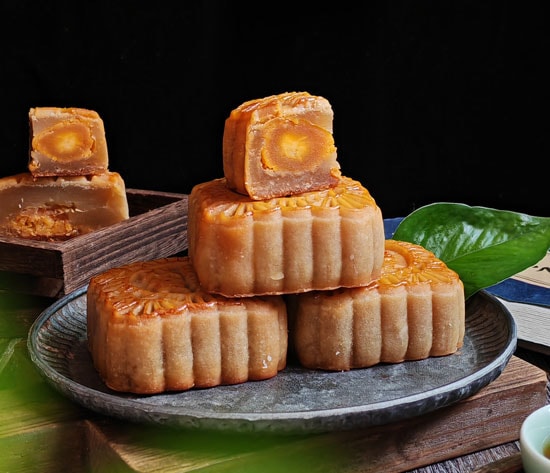
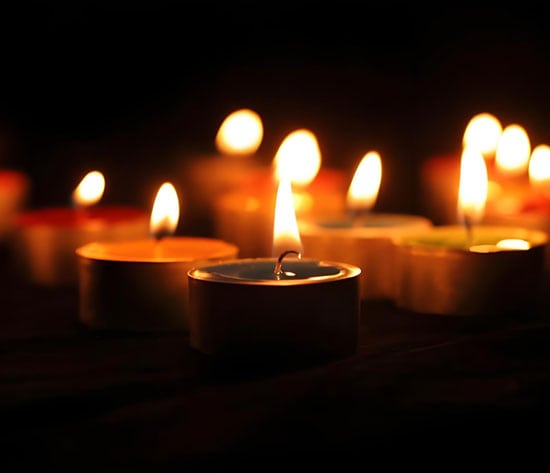
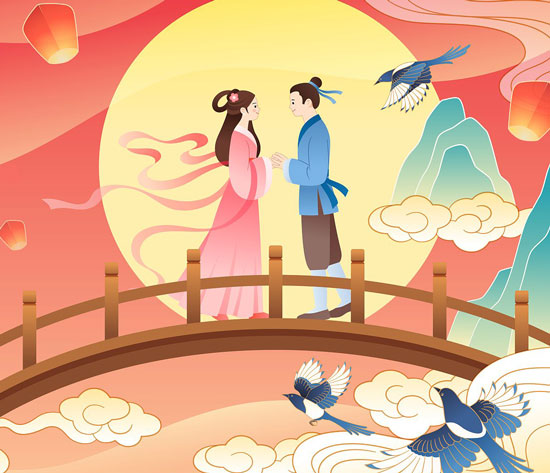
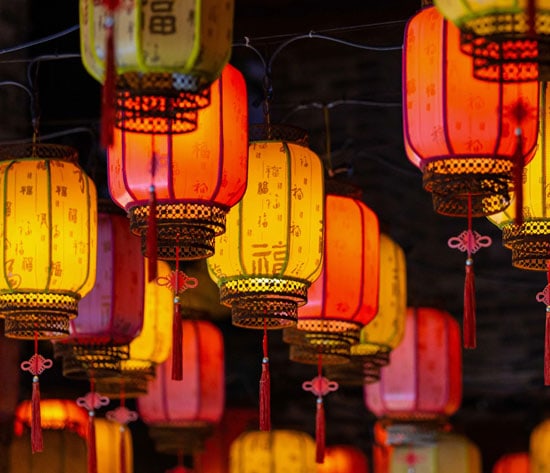
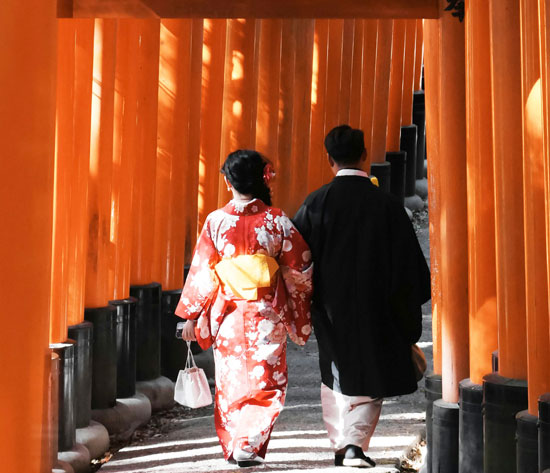
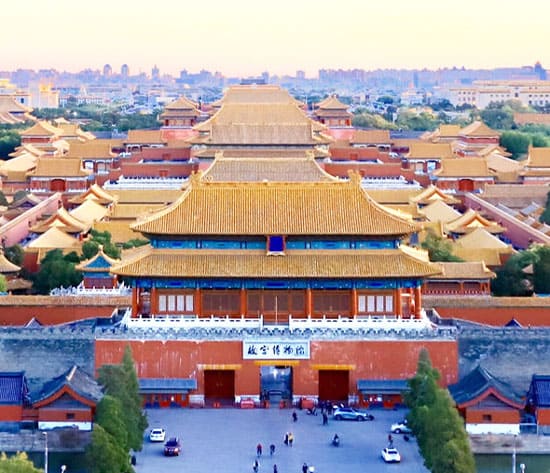
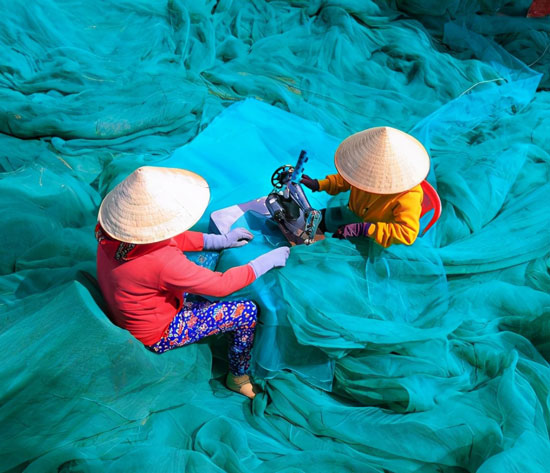

Have a Question?
You might see your comment appear on this page, but your email address and full name will not be published. Your personal information will remain confidential. Our Asia travel experts will get back to you as soon as possible. Required fields are marked *